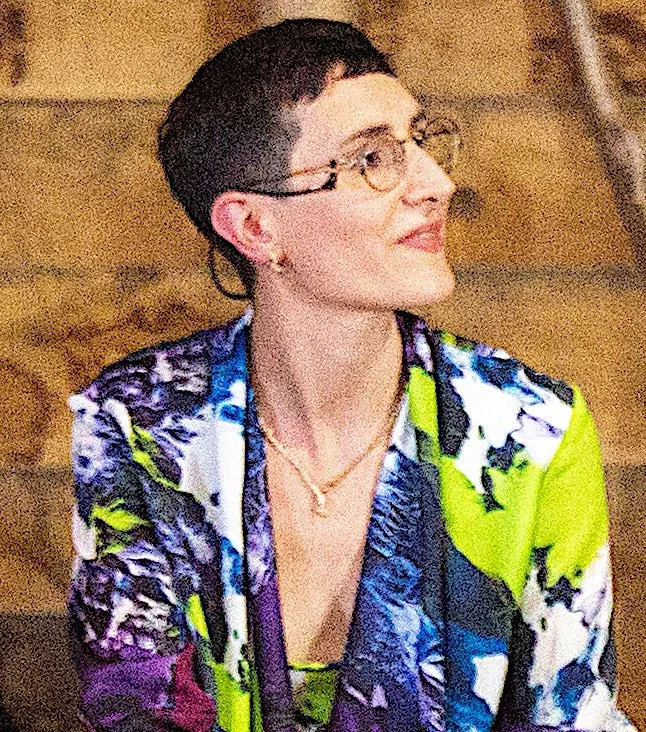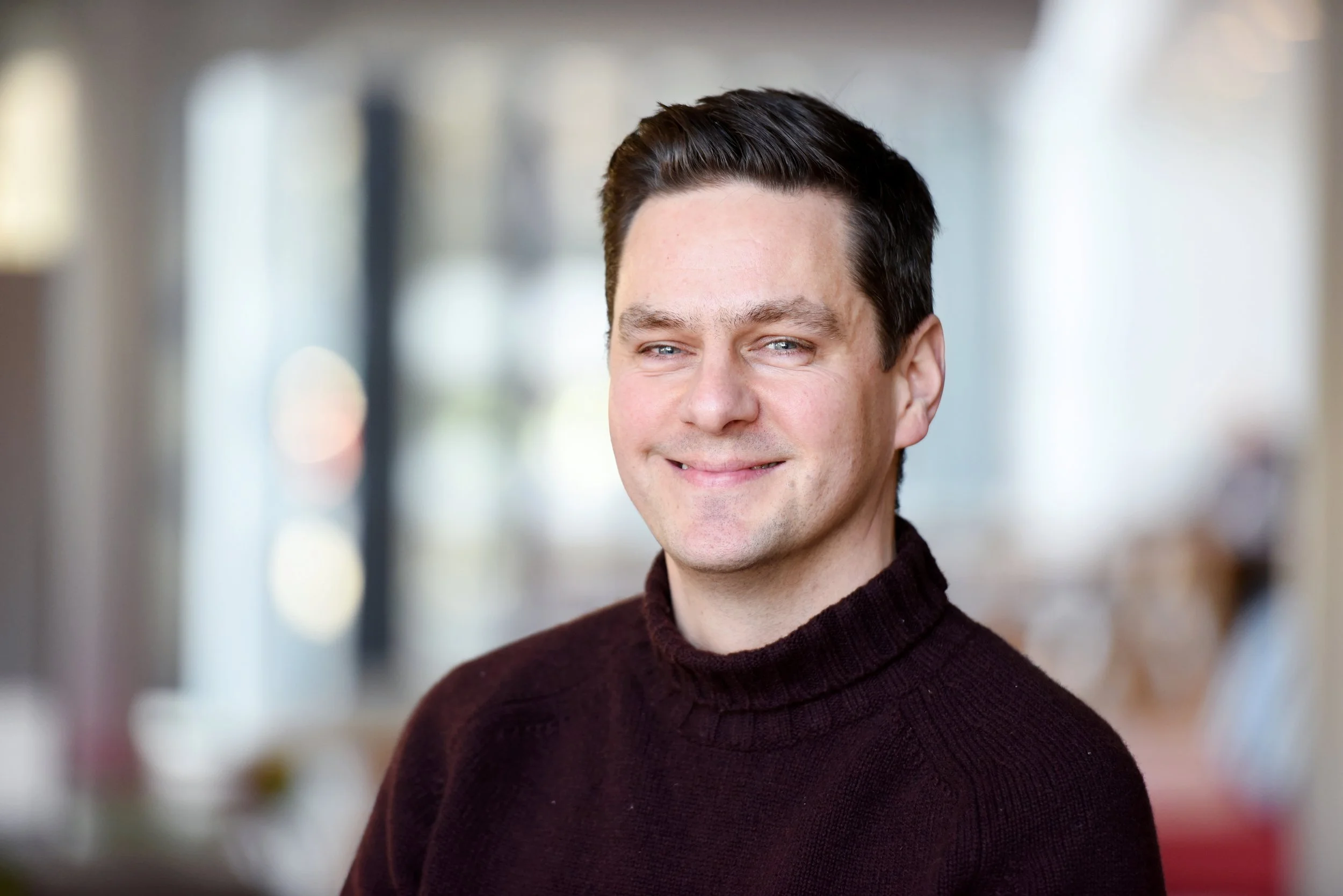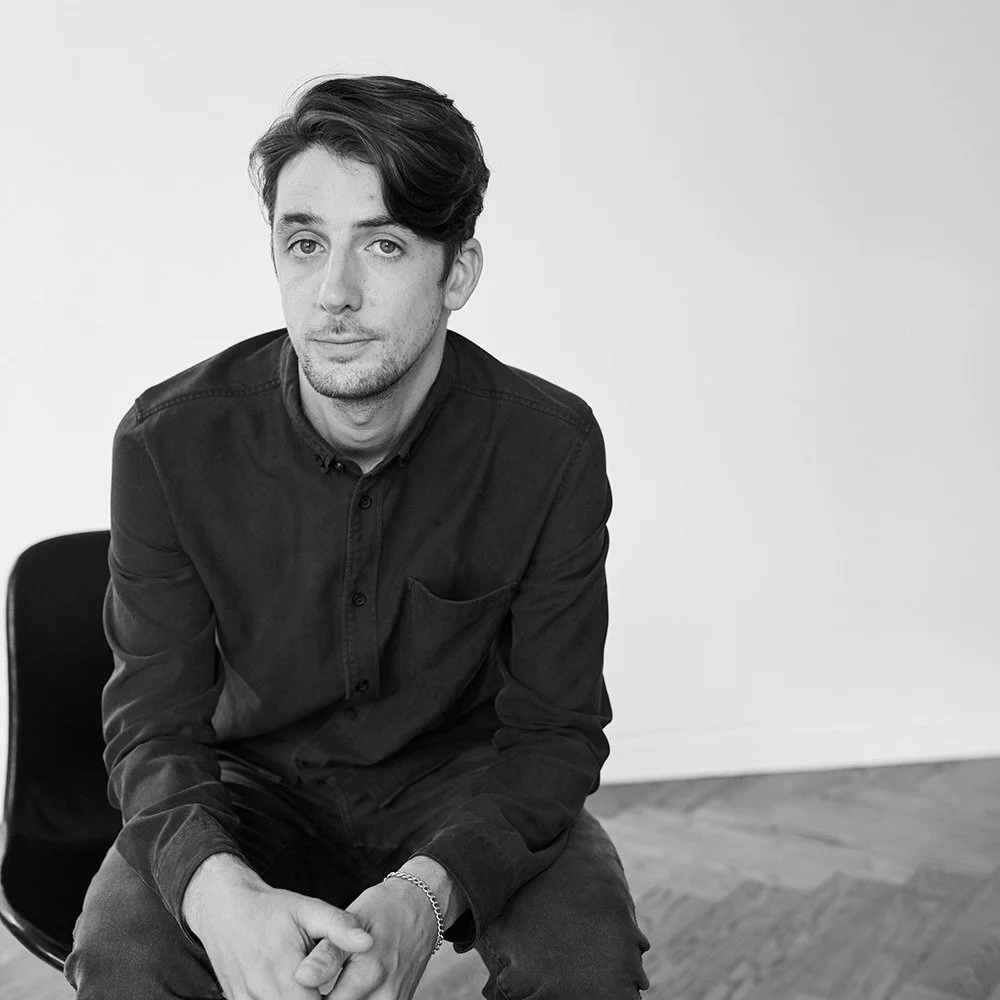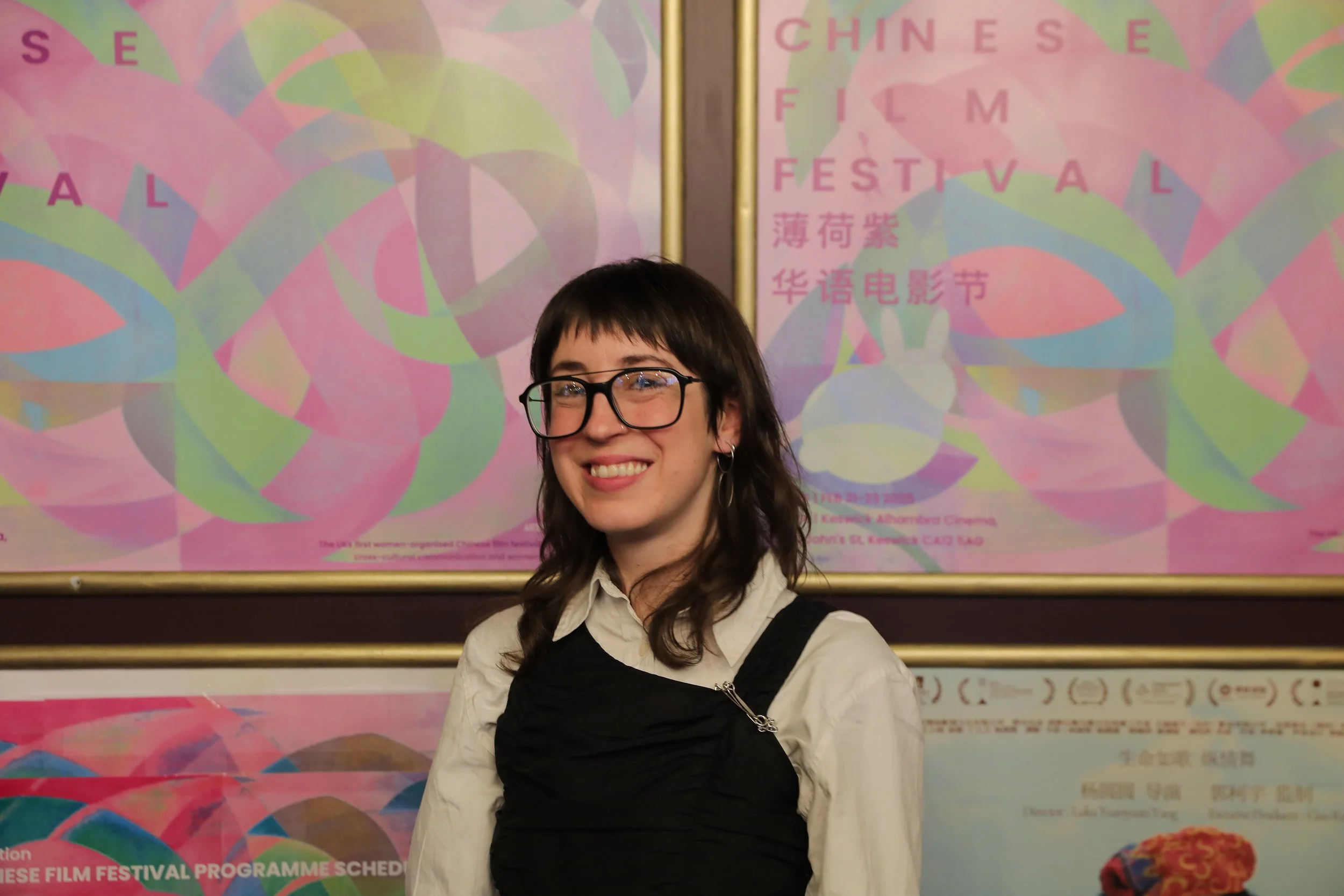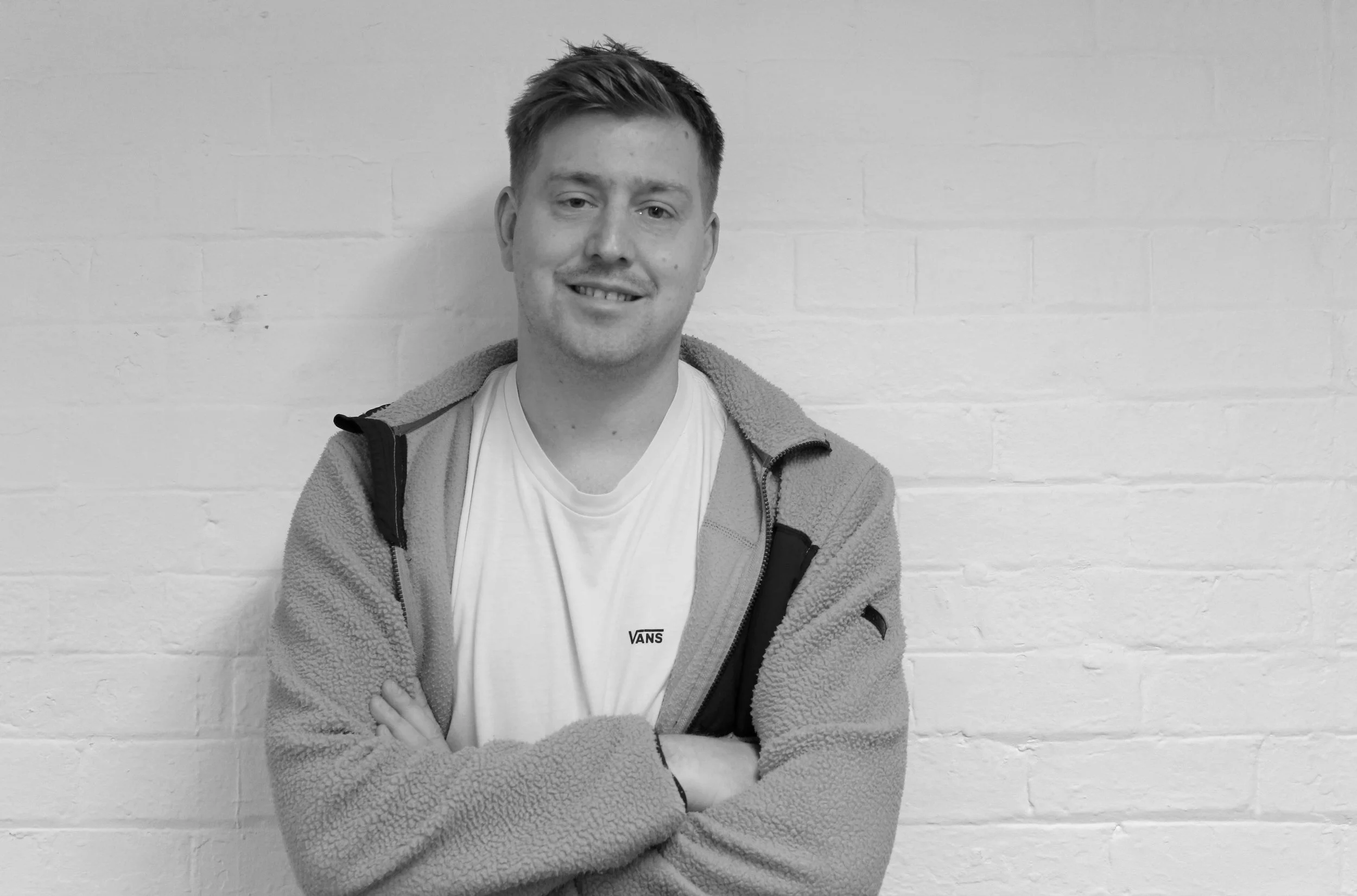-

Dr Gabrielle Barkess-Kerr
Founder of CEN, contemporary art curator, social anthropologist and academic
Dr Gabrielle Barkess-Kerr is an academic and curator specialising in Contemporary Art Theory, Social Anthropology, Curation, and Professional Expertise, with a PhD in Social Anthropology from the University of Durham. She brings a multidisciplinary approach to her role as a Teaching Fellow at Edinburgh College of Art, where she explores the intersection of art, anthropology, and curation within contemporary practice. Gabrielle has taught at various institutions, including the University of Edinburgh, University of Sunderland, and Durham University, integrating her academic expertise with hands-on curatorial experience.
Gabrielle's curatorial practice spans exhibitions, art films, and public programming, emphasizing innovative exhibition concepts, multimedia project management, and engaging narratives that resonate with diverse audiences. Skilled in overseeing all aspects of the curatorial process—from conceptualisation to audience development—she has created projects that are both artistically ambitious and culturally impactful.
-

Adam Benmakhlouf
Writer, educator and curator
Adam Benmakhlouf (they/them) is a writer, educator, and curator based across Scotland. Currently, they are a Teaching Fellow in Contemporary Art Theory at the University of Edinburgh, and a doctoral candidate whose research is supported by University of Dundee, Duncan of Jordanstone College of Art and Design and Dundee Contemporary Arts. Adam has for over a decade been writing prolifically on contemporary art, notably as the Art Editor for The Skinny Magazine for eight years, whilst also publishing in renowned art periodicals, including Frieze and Art Monthly. Adam has held senior positions in programming and education across several major Scottish institutions.
-

Dr niki black
Artist, researcher and curator
Dr Niki Black is an artist, curator and researcher living in Northumberland, UK.
Niki’s cross-disciplinary artistic practice encompasses visual methods and participatory events. Her work engages with communities facing often multiple challenges (economic, environmental, social) in the UK and in multiple international contexts, in what was, arguably controversially, termed ‘developmental practice’. She also works with other-than-human species, particularly bees. Working in these contexts has emphasised the need for reflective, and reflexive, ethical approaches whilst also highlighting the historical, and contemporary, complexity of these environments. Her academic interests are rooted in this practice, with her research focusing on the role and value of culture and creativity in sustainable futures, cultural and heritage practices, festivities and performances, primarily in rural communities. She was Senior Research Associate at Newcastle University (2015-2024) in the School of Arts and Culture and the School of Architecture, Landscape and Planning, working with artists, communities and policy makers on a variety of projects including Mapping Contemporary Art in the Heritage Experience (2017-2019) MCAHE | MCAHE | Newcastle University, and Living Deltas Research Hub (2020-2024) Delta Hub. As a freelance curator, she curated the first artistic response to the felled Sycamore Gap tree, Heartwood (2024) Heartwood exhibition | National Trust.
-

Dr Suzy O'Hara
Curator, educator and practice-led scholar
Dr Suzy O’Hara is a Lecturer in Digital Arts and Enterprise in the School of Art, Design and Performance at University of Sunderland, where she leads CoLab Sunderland. As a curator, educator, and practice led scholar, her research is concerned with exploring the central role that art-making and curatorial praxis play in addressing pressing environmental and social challenges impacting society. Recent projects include curating public programmes that explore the role that cross - sector curatorship and interdisciplinary artmaking can play in engaging local communities with pioneering Big Data scientific discovery, marine environment and heritage protection, and urgent practical challenges caused by coastal erosion. With Victoria Bradbury, she is the co-editor of Art Hack Practice: Critical Intersections of Art, Innovation and the Maker Movement (Routledge, 2020).
-

Dr Marianna Tsionki
Associate Professor, curator and art theorist
Dr Marianna Tsionki is an art theorist and curator working at the intersection of contemporary art, ecology and technology. She is Associate Professor and University Curator at Leeds Arts University. She holds a PhD in Curatorial Studies from Manchester School of Art and an MA in Contemporary Art Theory from Visual Cultures, Goldsmiths University of London. Her curatorial projects and writing address issues of climate change, ecotechnology, global ecologies of resource exploitation and humanity’s post-industrial relationship with nature, decolonial eco-visualities, local ecological knowledge and eco-feminism. Marianna has contributed essays to several edited volumes, exhibition catalogues, peer-reviewed journals with a forthcoming edited volume, We Live Like Trees Inside the Footsteps of Our Ancestors (K. Verlag, 2025, co-edited with Mariana Cunha). Among others, she curated Liminal Ecologies at tranzit (co-curated with Mariana Cunha), The School of Mutants (Blenheim Walk Gallery, Leeds, 2024), Kyriaki Goni: Networks of Trust (SixtyEight Art Institute, Copenhagen, 2022), Marwa Arsanios: Who is Afraid of Ideology? (Blenheim Walk Gallery, Leeds, 2022), Meteorological Mobilities (Apexart, New York City, 2020).
Image credit: Jules Lister.
-

Kelly Rappleye
Curator and PhD researcher
Kelly Rappleye is an AHRC/SGSAH PhD researcher at Glasgow School of Art and a curator with 16 Collective, a feminist non-profit gallery based in Glasgow. Her research and practice explore the role of contemporary art in urban spaces, with a particular focus on moving image and cultural memory. Kelly was a 2024 member of the British Art Network’s Emerging Curators Group and a 2024 Venice Biennale Fellow with the British Council. She holds an MA in Contemporary Art Theory from Goldsmiths, UoL and has presented her research at various conferences, including the Istanbul Bilgi University Television & Media Studies Conference (2023) and the upcoming Association for Art History Conference (2025). Her doctoral research on contemporary Scottish moving image enagages themes of colonial histories, contested memory, and the intersections of film and urban landscapes. Kelly has curated programmes with organisations such as ArchiFringe festival, Tate, and LUX Scotland, integrating research, screenings, discussions, and workshops.
-

Sandy Sigala
Research-led artist, educator and curator
Sandy Sigala, (she/they) is a research-led artist, educator and curator based between Glasgow and Athens. Currently they are undertaking a practice-based PhD in Art at the Edinburgh College of Art (ECA). Alongside their studies they are a part-time tutor across 3 departments in ECA (Art, Environmental Design and History of Art) as well as gallery and event support in Glasgow’s Centre for Contemporary Art (CCA).
Sandy works across different mediums, experimenting with materiality, employing humour and wit as tools to both question and reflect on stuff. Their doctoral research project focuses on the bricolage of politics and poiesis in post-industrial sites across Europe. Drawing from epistemologies of the Global South, First Nations walking practices and contemporary art they explore themes of resilience and transformation in wasted landscapes. Their latest curatorial project Vegetal Resistance (2023) brought together international artists and scholars, NOMASMETAFORAS, Dr Emma Balkind and Debra Solomon- cofounder of Urbania Hoeve Social Design Lab for Urban Agriculture.
This public seminar series was part of their artist-in-residence research position with The Glasgow Seed Library; that focused on alchemical thought and botanical knowledge to promote ecological awareness in negative commons.
-

Eleanor Edmondson
Curator
Eleanor Edmondson is a curator originally from Northern England, now based in Scotland. She is currently the Curator of EAF (Edinburgh Art Festival), where she develops exhibitions, commissions, and public programs that engage diverse audiences with contemporary art.
Her curatorial practice is rooted in supporting emerging artists, fostering spaces of care, conversation, and knowledge exchange. She is particularly interested in collaborative and process-led approaches, working closely with artists to develop new work that is responsive to place, history, and community.
Prior to her role at EAF, Eleanor worked with a range of arts organisations, festivals, and institutions across the UK, developing projects that foreground artistic experimentation, accessibility, and critical dialogue. Her work often explores themes of social engagement, site-specificity, and the intersection of art and everyday experience.
-
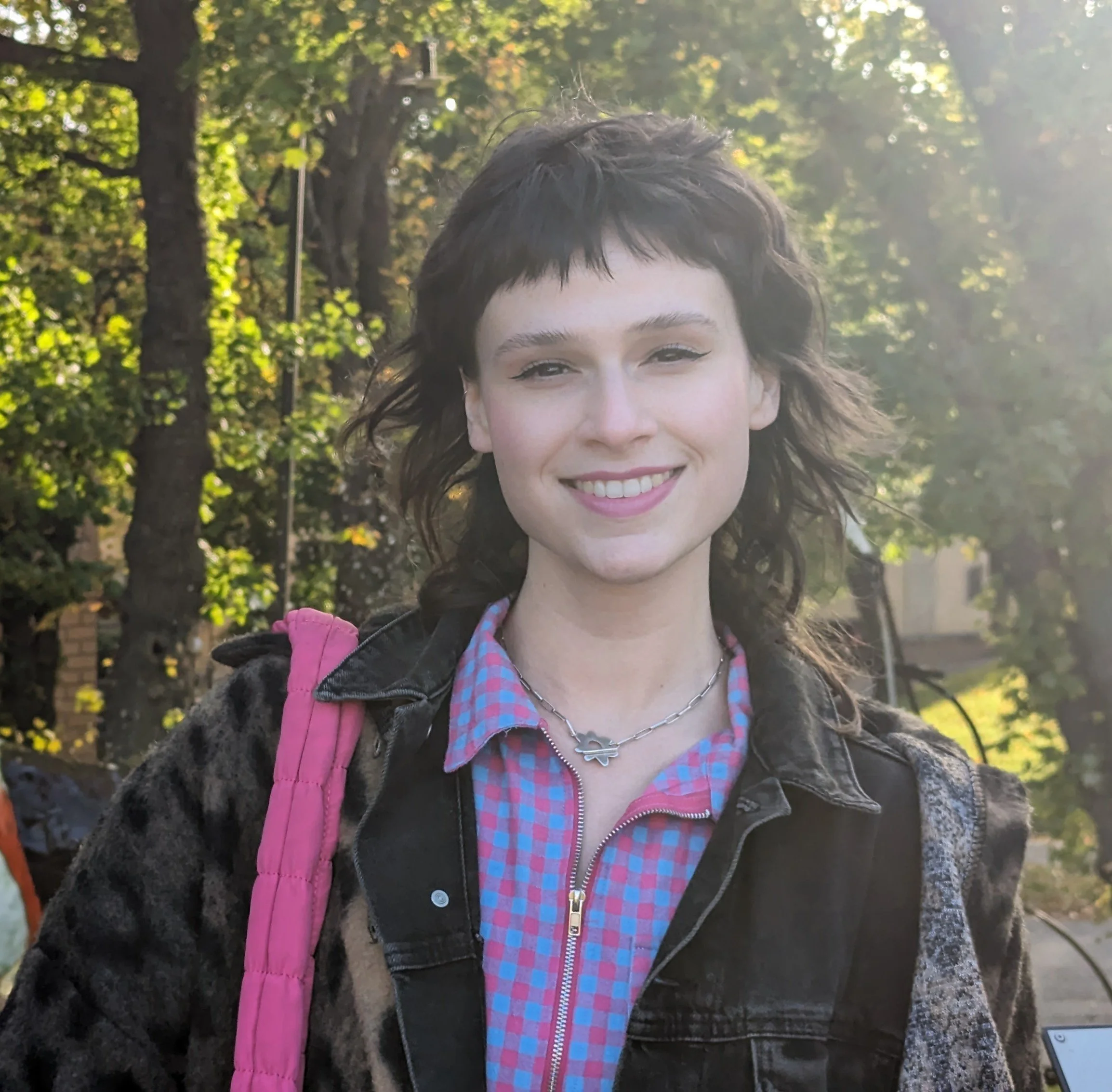
Rachel Ashenden
Art writer, editor and curator
Rachel Ashenden (she/they) is an art writer, editor and curator active in Scotland's creative sector. Her research focuses on art as an activism tool.
Rachel's editorial work platforms personal and political art writing. In 2020 she co-founded The Debutante, a magazine dedicated to the lives and legacies of women surrealists. Alongside, she co-curates Electric Muses, a BFI funded film exhibition series that stages silent surrealist films to a live score. In early 2025, she took on the position of Art Editor of The Skinny, Scotland's leading arts and culture magazine.
She recently graduated from Craft Scotland's Emerging Curator development programme, during which she co-curated 'If only we had the space', an exhibition at Platform that foregrounded Glasgow's housing activism through archival material alongside works by contemporary makers.
-

Giulia Calvi
Writer, curator, and PhD researcher
Giulia Calvi (she/they) is a writer, curator and CHASE-funded Doctoral Researcher based in London. Their PhD research is provisionally titled Queering Pirate History: Displaying Atlantic Maritime Heritage. Their research interests include queer histories, radical ecologies, the ethics of curatorial practices and displays, intersectionality and accessibility within museum spaces and the way societal narratives play out in cultural institutions. They currently work as Assistant Curator of Interpretation at Tate.
-

Natnael Ashebir
Visual artist and founder of Contemporary African
Natnael Ashebir (b. 1995, Ethiopia) is a visual artist whose work explores themes of identity, memory, place, and history. Working across painting, photography, and drawing, he examines subjects such as urban displacement, decolonization, resilience, and the intersection of personal and collective identities.
He earned a Bachelor of Fine Arts (BFA) from the Alle School of Fine Art and Design in 2021 and a diploma from Entoto Polytechnic College in 2016. In 2022, he was awarded second prize at the Emerging Painting Invitational Prize (EPI).
Natnael is also the founder of Contemporary African, a platform dedicated to showcasing and amplifying the voices of African artists. He is currently based in Addis Ababa, Ethiopia.
-
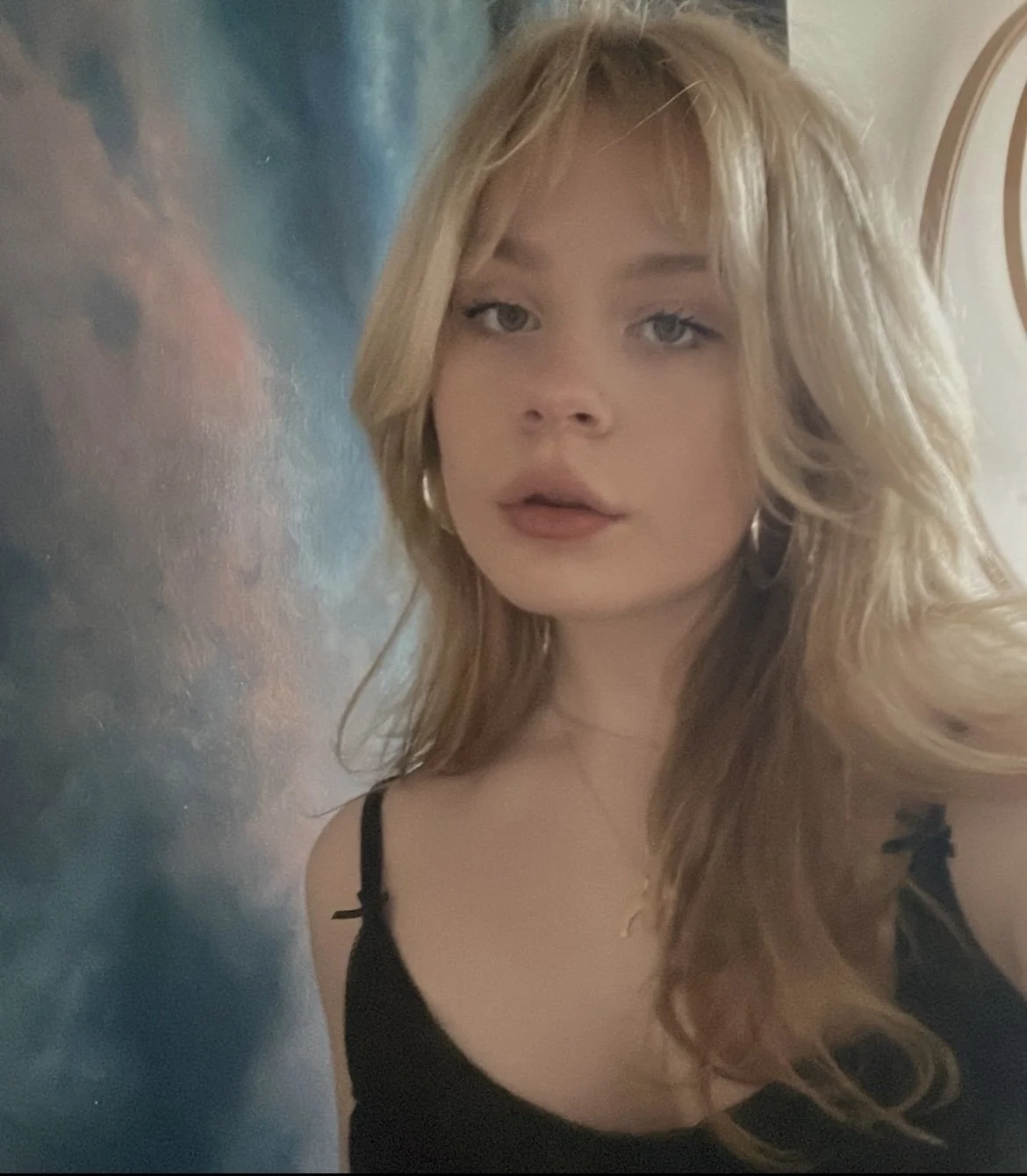
Celeste MacLeod-Brown
Curator, writer, and artist
Celeste MacLeod-Brown (she/her) is a curator, writer, and artist based across Scotland. With a background in environmental art (Glasgow School of Art), she is the founder of Naive Set, a collective dedicated to exploring experimental curatorial methods and collaborative knowledge production. Her work centres on reimagining knowledge formats through an intersectional feminist lens, emphasising the integration of affect and emotion within socio-political contexts.
Her curatorial research often draws connections between different cultural fields, particularly literature and event-based enquiry. Celeste has collaborated with various arts organisations, with a specific focus on multi-arts festivals, having contributed to projects such as Edinburgh Art Festival’s 20th edition, the Venice Biennale (Britain), and Hidden Door Festival’s The Environments.
She has also held roles in development, evaluation, and higher education consultancy, focusing on ethical approaches to funding and programming. In 2024, she was a Venice Biennale Fellow with the British Council and received The Skinny x EAF Emerging Writers Award. She publishes art writing and creative nonfiction on a freelance basis and maintains an active research-based arts practice.
-

Dagim Abebe
Artist and writer
Dagim Abebe is a visual artist and writer based in Addis Ababa, Ethiopia. He holds a Bachelor of Fine Arts (BFA) in Painting (2018) and a Master of Fine Arts (MFA) from the Alle School of Fine Arts and Design at Addis Ababa University. His MFA thesis, The Gambits (2023), explores complex narratives of contemporary issues through art practices. In addition to his artistic practice, Dagim writes on the evolution of Ethiopian contemporary art, focusing on themes of memory, identity, and collective experiences. His writings have been featured on Africanah.org.
-
Helen Kaplinsky
Curator, writer, and doctoral researcher
Helen Kaplinsky (she/her) is a curator and writer based between Finland and the UK. Over the past decade her projects have spanned questions of postdigital identity, femininity and ownership. She has curated several projects involving cyberfeminism(s) and its echoes in current feminist art practice - the focus of her current PhD studies at the Exhibition Research Lab, Liverpool John Moores.
In recent years she has worked on events and exhibitions with HAM (Helsinki Art Museum), Tallinn Kunstihoone, Helsinki Biennial, Barbican, Tate (Modern and Britain), Whitechapel Gallery and Transmediale Festival. She co-directed London project space Res between 2015-2020 and has curated collection-based exhibitions with the Contemporary Art Society and the Arts Council Collection. Her writing has been published by Routledge, Artmonthly, Institute of Network Cultures, Liverpool University Press and Bristol University Press among others.
Image credit: Anna Autio.
-
Dr George Vasey
Curator, writer, and senior lecturer
Dr. George Vasey (he/him) is a curator, writer, and Senior Lecturer in Curating at Teesside University. He is Co-Chair of New Contemporaries and a member of AICA-UK. His writing on curating, art, and material culture is widely published in magazines, books, and journals.
Over the course of his career, he has curated more than 50 projects across the academic, public, and commercial sector. He is committed to inclusive, intergenerational, and interdisciplinary approaches to exhibition-making and commissioning, across contemporary art and heritage. His curatorial practice is invested in exhibitions as sites of co-produced storytelling, uncovering hidden and marginalized histories.
His research interests include art and healthcare, art education, ethical curation, disability, and the intersections of taste and value in art making, particularly in regards to working-class culture. He is deeply invested in supporting and championing artists, writers, and curators in developing sustainable practices by reducing barriers to access and participation.
Image Credit: Judy Hume
-
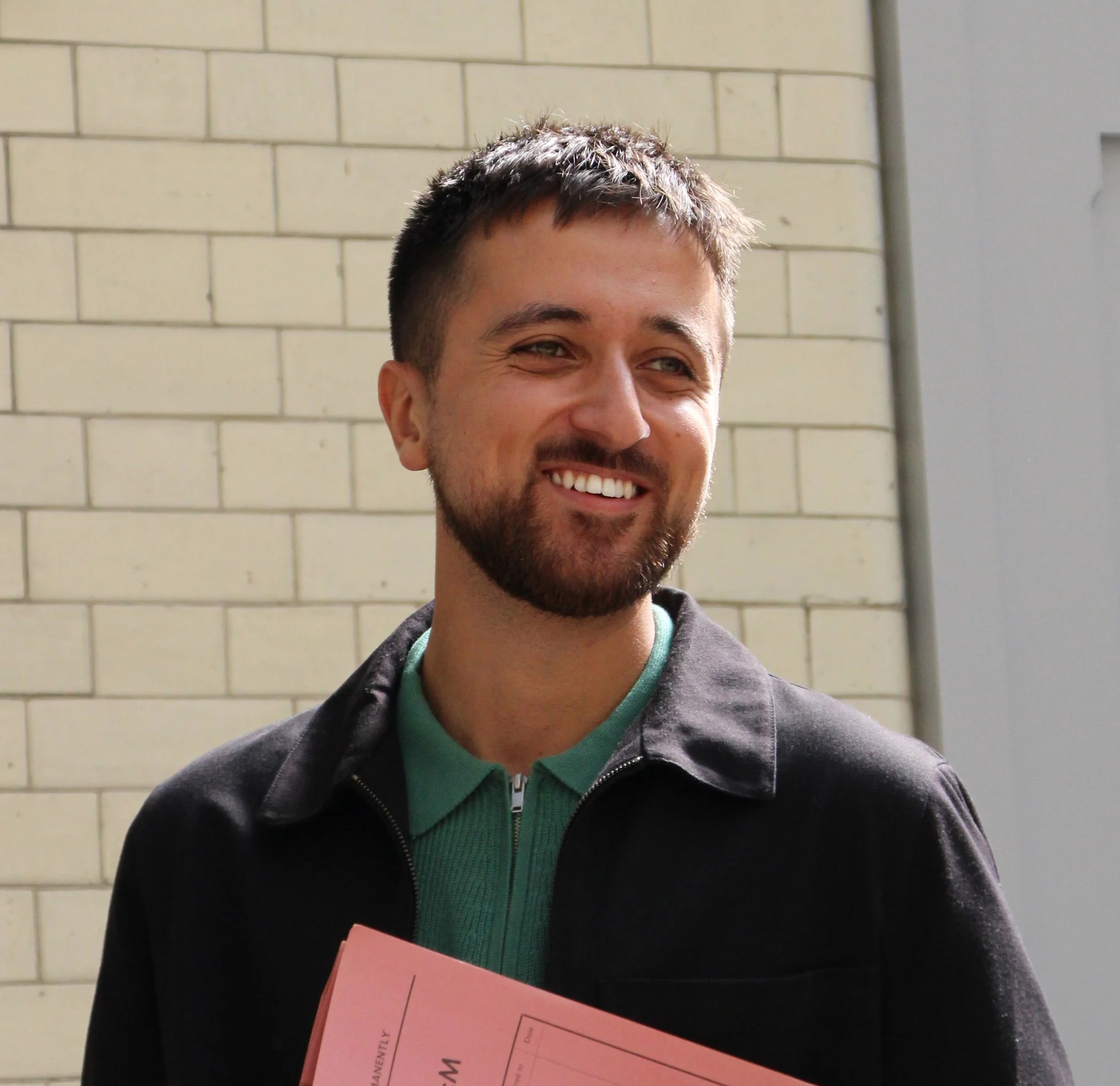
Surya Bowyer
Curator and historian
Surya Bowyer is a curator and historian working at the intersection of art and science. He was chosen as a British Art Network Emerging Curator for 2023, and in the same year was awarded a Smithsonian International Fellowship.
Much of his current and recent work is about “memory institutions” — museums, archives, and libraries. Surya works between the museum sector and academia: he has a strong research publication record, and has produced exhibitions both as the lead curator and as part of a curatorial team. His AHRC-funded PhD project is titled Collecting the Boundaries of Art in the Science Museum. It is a collaborative doctoral project between the Science Museum Group and Birkbeck, University of London.
Previously Surya was Curator of Collections & Head of Library Services at Queen Elizabeth’s School, Barnet, where he led a large-scale digital project. Before that he taught at Sorbonne University’s Faculté des Lettres.
He has served as a freelance specialist consultant on the links between art and science for Penguin Random House, and has also provided historical expertise on various projects including The Man in the Red Coat by Booker Prize-winning writer Julian Barnes. Surya holds an MA from UCL's Centre for Multidisciplinary and Intercultural Inquiry, and a BA from the University of Oxford.
-
Ned McConnell
Curator and writer
Ned McConnell is a curator and writer committed to fostering ethical and inclusive approaches to curatorial practice, particularly in performance, multidisciplinary art and exhibition making. He is currently curator at the Roberts institute of Art where he has developed exhibitions and programmes that critically engage with contemporary art’s social, political, and ethical dimensions. He previously held curatorial roles at institutions including Pump House Gallery and the Whitechapel Gallery.
McConnell has co-curated major exhibitions for the Roberts Institute of Art such as Earthbound (Sheffield Museums, 2021), Flesh Arranges Itself Differently (The Hunterian, Glasgow, 2022), and Deep Horizons (MIMA, Middlesbrough 2023). He has commissioned artists who challenge institutional structures and advocate for new forms of engagement, including on projects such as The Grounds We Tread (Pump House Gallery, 2016) and Live Art Commissions (Roberts Institute of Art, 2022), Practising Performance (the Roberts Institute of Art, 2023-ongoing) working with artists such as Jiri Kovanda, Sriwhana Spong, Rachel Jones, Prem Sahib, Simeon Barclay, Linder and Holly Blakey.
His writing contributes to critical discourse on curatorial ethics, with essays and catalogue texts for institutions including Flat Time House/the Roberts Institute of Art, The Hunterian/the Roberts Institute of Art, and Space K, alongside contributions to Art Monthly. Through fellowships and grants from the Neon Foundation, Netwerk Centre for Contemporary Art, and Arts Council England, McConnell has cultivated an international outlook, engaging with institutions that prioritise curatorial responsibility. He has lectured at the Royal College of Art and Chelsea College of Art & Design.
-
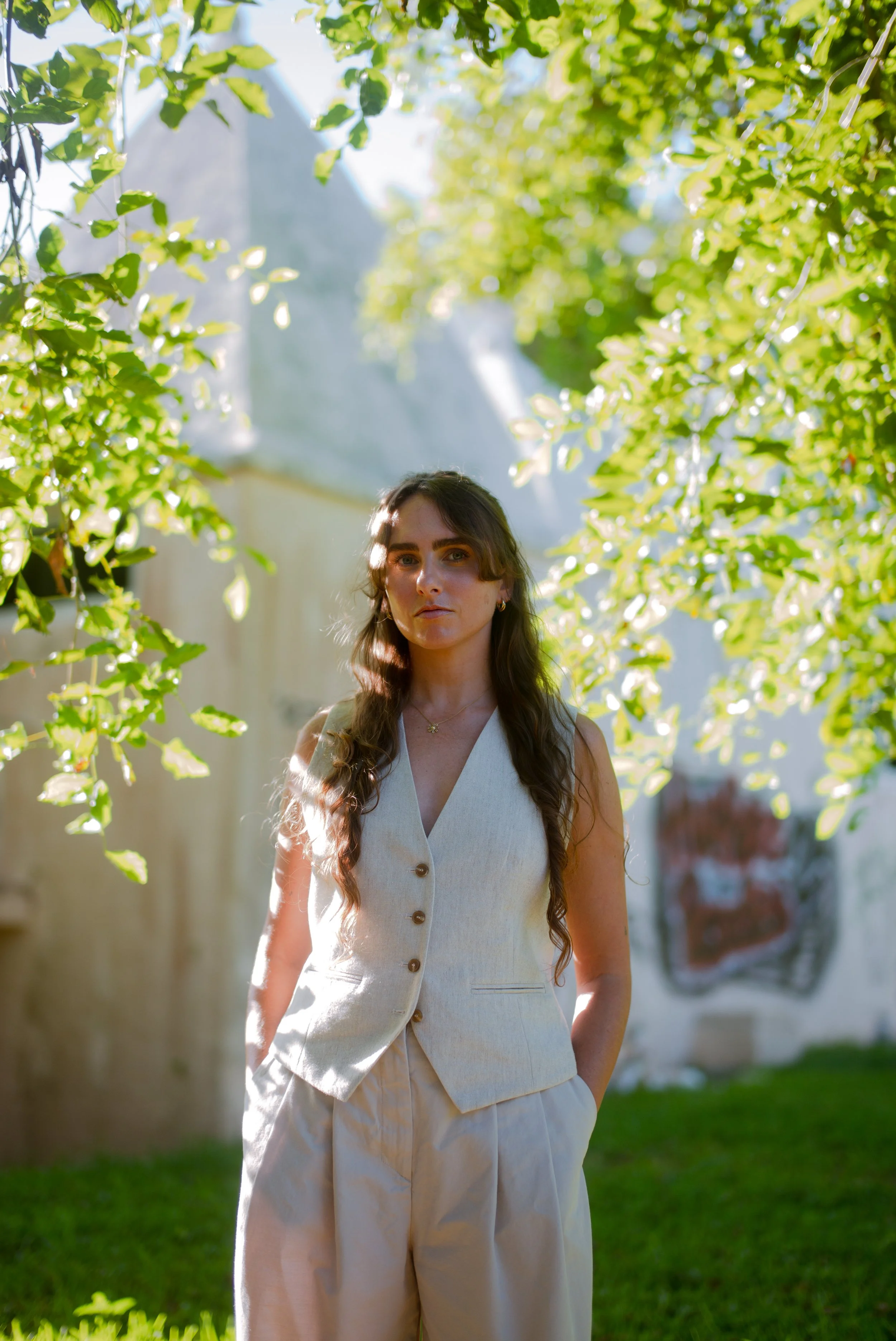
Daisy Gould
Curator and researcher
Daisy (she/her) is a Bermudian-British curator, writer, and researcher based in London. She is currently Assistant Curator of Live Programmes at Serpentine, where she also works on the Ecologies programme. Her ongoing research explores Caribbean art, ecology, and theory, with a particular focus on contemporary Bermudian art. She is especially interested in how artistic practice, in dialogue with ecology, can cultivate a decolonial visual language and, this autumn, she will begin a PhD at The Courtauld to further this research.
Her curatorial and academic work is deeply rooted in inclusivity, recognising artistic practice as a vital mode of knowledge production. She is committed to fostering accessible and socially engaged programming that prioritises collaboration, amplifies underrepresented voices, and considers long-term impact.
Prior to joining Serpentine, Daisy was part of the curatorial teams at Hayward Gallery Touring and Tate Britain. She holds a BA in Art History and an MA in Contemporary Art Theory.
Image credit: Nicola Muirhead
-

Rudy Kanhye
Artist and curator
Rudy Kanhye is a disabled artist and independent curator who works between Mauritius, France, and Scotland. His research interests include archives, memories, and oral histories, extending this focus through Mauritius Island, the Global South and its neo-colonial relationship to the West.
Born in Dijon, France, to a Portuguese mother and a Mauritian father, his childhood dual culture, mixed-race heritage and working-class influence his practice.
As a descendent of Indian indentured immigrants, he is working closely with the Aapravasi Ghat in Mauritius, the only indentured labour site listed as a World Heritage Site; his curatorial approach follows Khal Torabully's idea of coolitude, expanding on the idea of inclusive indentureship bringing the paradigm of indenture to a global approach of the margins in the colonial memory and the marginalised victims of systems of labour.
As a curator, Rudy Kanhye is interested in the contexts and conditions of contemporary art and art-institutional practices and how they are affected by the climate emergency, the accumulation of crises, and the processes of colonialism. He considers curatorship to be working in service of and coalition with others.
-
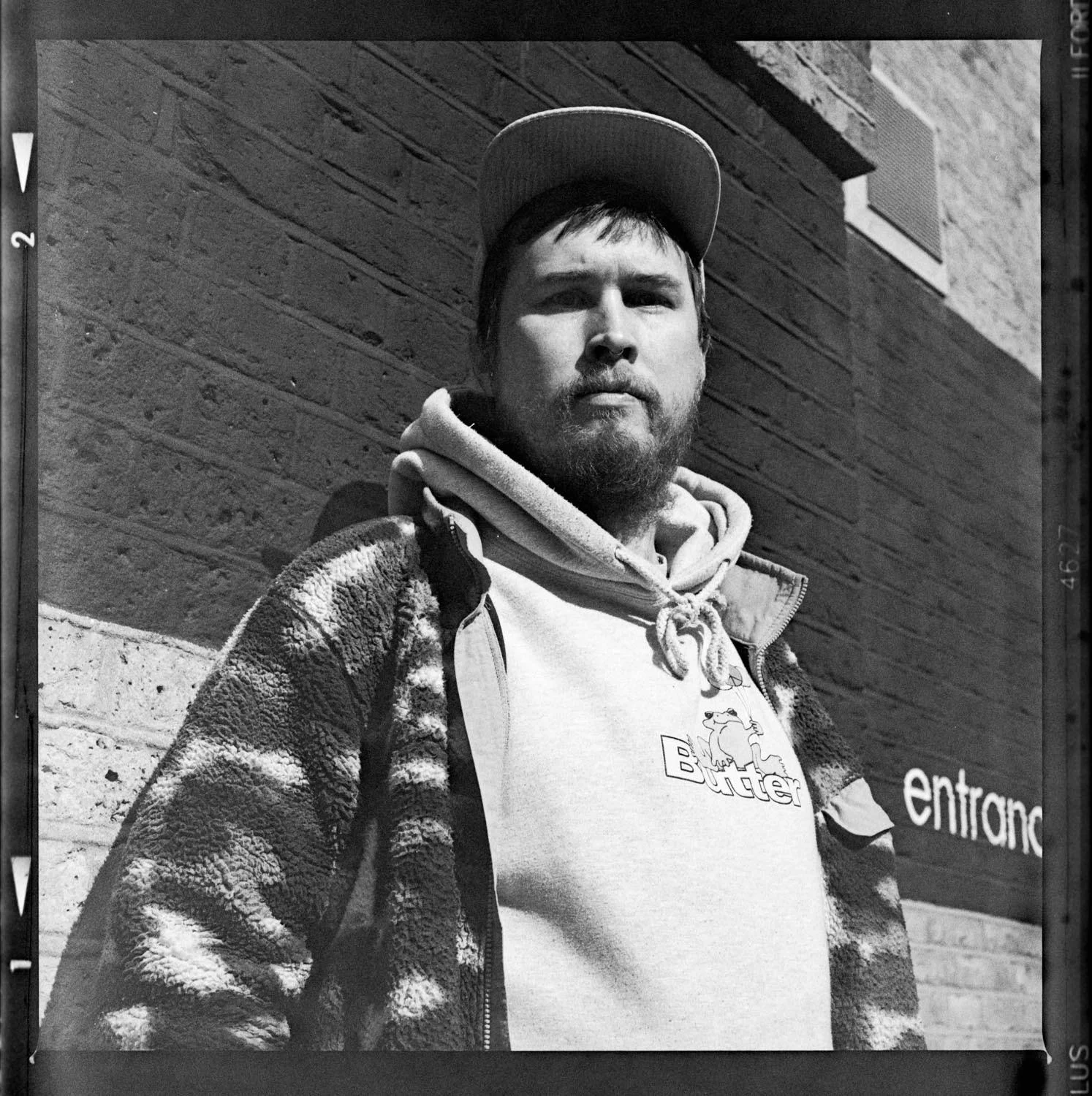
Dr Warren Harper
Curator, researcher, and writer
Dr Warren Harper (he/him) is a curator, researcher and writer currently based in Toronto, Canada. He holds a PhD from Goldsmiths, University of London, and has worked with various arts organisations and institutions across the UK, Canada and the US. He is a member of the plumb, an ad hoc collective of Toronto-based artists, writers, and curators, and is currently Exhibition Manager at the Museum of Contemporary Art Toronto.
His research interests are at the intersection of art and nuclear culture, ecology, and sustainable and ethical curatorial practices. Warren's work has also been preoccupied with art education, the art world and its accessibility, particularly from a working-class perspective. He advocates for an expanded understanding of the curatorial, its interdisciplinarity and how it engages with complex contexts.
Image credit: Anna Lukala.
-

Dawit Algerson
Curator
Dawit Algerson is a curator. This is his curatorial statement:”I see curating as more than just exhibition-making—it’s an act of storytelling, activism, and resistance. My practice is deeply rooted in the belief that art is a powerful tool for engaging with pressing societal issues, challenging dominant narratives, and fostering inclusivity, representation, tolerance, and acceptance. Ethics are at the core of my curatorial approach, ensuring that each exhibition becomes a platform for dialogue, critical engagement, and social change.
My curatorial journey began in Addis Ababa, Ethiopia, where I worked for over three years with Addis Fine Art, the country’s first contemporary white cube gallery. There, I had the privilege of working closely with some of East Africa’s most impactful artists, shaping conversations around contemporary African art and expanding its visibility on the global stage.
Currently based between Denmark and Moldova, I am pursuing a Master’s in Curating at Aarhus University, Denmark, while actively curating projects that address themes of migration, human rights, and collective memory. My curatorial approach is activist in nature—I believe exhibitions should not just display art but create critical spaces that challenge power structures and amplify marginalized voices.
In Moldova, I have curated two major exhibitions that align with this vision:
“Art Against Hate Speech” (Chișinău, Moldova) – A street exhibition organized by UN Human Rights, featuring 25 Moldovan artists. This project transformed public space into an arena for resistance, engaging the city in an urgent conversation about the rise of hate speech and the power of artistic activism.
“Februarie 2022: Ecouri” (Muzeul Național de Artă al Moldovei) – An exhibition organized by UNHCR, commemorating three years since the Ukrainian invasion and highlighting the experiences of Ukrainian refugees in Moldova. This project was not just about documentation, but about creating a space for reflection, empathy, and collective resilience.
Through my work, I seek to bridge the gap between art and activism, curating exhibitions that not only provoke thought but also encourage action. I am drawn to projects that challenge conventional curatorial frameworks, embracing opacity (Glissant), countervisuality (Mirzoeff), and forensic strategies (Weizman) as tools to disrupt, reveal, and resist. For me, curating is a practice of care—care for artists, for communities, and for the narratives that deserve to be told on their own terms.”
-
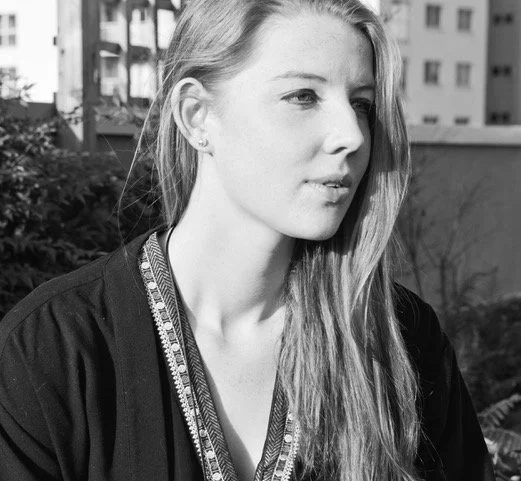
Georgia Perkins
Curator and researcher
Georgia Perkins is a researcher and curator based in London. Her research investigates the relationship between molecular and sensible politics in art theory, environmental feminism and queer studies. She is a teaching fellow on the MA in Media Practices at Winchester School of Art, University of Southampton, curatorial fellow at SIRIUS, Ireland, and a doctoral candidate in the Visual Cultures Department at Goldsmiths, University of London.
She has worked on numerous curatorial projects including exhibitions and events with artists and writers including Anton Vidokle, Chila Kumari Burman, Daniela Ortiz, Jennifer Lewandowski, Marie Brett, Ofri Cnaani, The Partisan Social Club, Samuel Levak, Shen Xin, The White Pube at SIRIUS, Ireland. In 2022, she co-led the inaugural Summer School with Gregory Sholette, Miguel Amado, Carlos Garrido Castellano. She has also collaborated on international exhibitions with curator Miguel Amado at Rampa, Portugal and FRAC Pays de la Loire, France.
She is a member of the International Association of Art Critics (AICA), Sites & Situations RCA Research Cluster, as well as a core member of the Liquidity cohort and Counterfield collective. She is currently a researcher connected to the Spatial Practices in Art and ArChitecture for Empathetic EXchange (SPACEX-Rise) EU Funded Project, and is undertaking secondments with the Royal College of Art, Coventry University, and University of Northampton. Georgia regularly hosts events at cultural institutions, such as FormaHQ, London; transmediale, Berlin; STATE Studio, Berlin; MayDay Rooms, London; The Mosaic Rooms, London; Exposed Arts Projects, London; House of Annetta, London; Galerie Nordenhake, Berlin; Rosalux, Berlin.
-
Nell Cardozo
Curator, writer, producer and creative project manager
Nell Cardozo (she/they) is a community engaged freelance curator, writer, producer and creative project manager based in Glasgow. They have an interest in connecting archival and contemporary moving image and engaging communities in this work. Currently they are a curatorial director at 16 Collective (Formerly 16 Nicholson Street Gallery), an itinerant gallery and curatorial collective (with Aga Paulina Młyńczak and Kelly Rappleye) dedicated to enjoyment of experimental contemporary art while honouring our commitment to power redistribution, with particular attention to female-identifying, queer and class-marginalised artists. They are also working as the Engagement and Development officer on the team running the Hippodrome Silent Film Festival, Bo'ness, where they build and manage relationships with stakeholders, funders and community partners. They have curated exhibitions, programmed events, led workshops and edited and written for publications. Previously, they have worked at the Scottish National Galleries as a Gallery Assistant and at the Gallery of Modern Art, Glasgow, curating GROWTH, an exhibition of youth artists. They graduated with an English Literature MA and a Museum Studies MSc at Glasgow University, where their thesis focused on investigating accessibility in online databases, with an internship at Art UK. They have also taught and led accessible activities connecting communities with art in Glasgow and Albany, NY.
-

Shalmali Shetty
Curator, writer and artist
Shalmali Shetty is an independent curator, writer and artist based in Glasgow and working between the UK and India. Her research interests include themes of archives, memories and hauntology, extending her focus through the familiar framework of India and its neo-colonial relationship to the West. She intends to coalesce her backgrounds in art practice and theory in the production of the curatorial.
Amongst various independent projects, Shalmali is currently working as Producer for an upcoming exhibition at the Centre for Contemporary Arts, Glasgow; and is on the Board of Trustees for Outpost Gallery, Norwich, and Scottish Contemporary Art Network (SCAN). She has published her writing on various arts platforms.
Shalmali holds a BVA in Painting from the Faculty of Fine Arts, MS University of Baroda (India), an MA in Arts and Aesthetics from Jawaharlal Nehru University, New Delhi (India), and an MLitt in Curatorial Practice (Contemporary Art) from the Glasgow School of Art (UK), supported by the Charles Wallace India Trust Scholarship. She is the recipient of the Visual Arts and Craft Makers Award (Glasgow); the Skinny Magazine x Edinburgh Art Festival Emerging Writers (Edinburgh), and the Art South Asia Project x Serendipity Arts Foundation Curatorial Research Fellowship (UK and India).
-
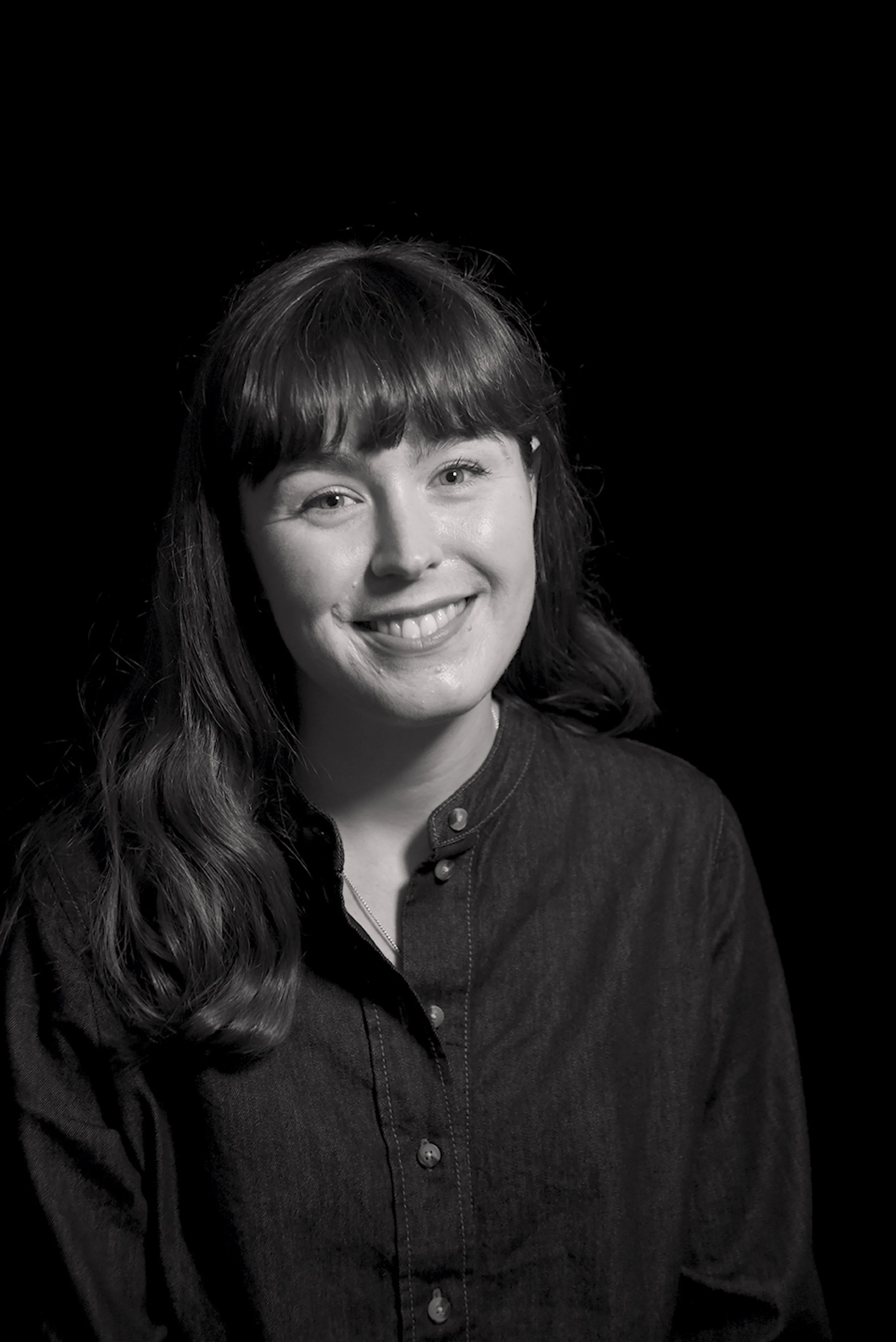
Siobhan McLaughlin
Artist and curator
Siobhan McLaughlin is an artist and freelance curator based between Glasgow and Penzance. She graduated in 2019 with First Class MA Hons in Fine Art at Edinburgh College of Art and has since been awarded a Stephen Palmer Travel Award to Orkney, RSA Residencies for Scotland Award and the SSA Wilhelmina Barns-Graham Award for Painting.
Her curatorial practice focuses on engagement, creating opportunities for sharing and opening up private spaces to the public. She works with emerging artists and also works to highlight the underrepresented stories of modern artists’ work. In 2022 Siobhan curated a major private collections exhibition, Alan Davie: Beginning of a Far-off World, and in 2023, Scottish Landscapes: A New Generation, both at Dovecot Studios, Edinburgh. Previous experience includes as Research Associate on Scotland + Venice Review, Culture Radar for Creative Scotland, Arts Researcher and Editor for the W Gordon Smith Collection Publication, and in 2021 she was selected for the British Art Network’s Emerging Curator’s Group run by the Tate and the Paul Mellon Centre. -
Stu Burke
Curator, artist, writer and researcher
Stu Burke (he/him) is co-director and curator at GLOAM Gallery (Sheffield, UK), whose curatorial interests lie within expanded painting, non-objective art, mark-making. Some recent exhibitions he has curated are Yellow June (Juin Jaune), An Expanding Field, Material Action and, Constructing the Surface. As an artist he has exhibited in the UK and internationally, exploring the porous boundaries of painting, sculpture and performance by playfully creating works that inhabit the in between, or exist simultaneously within multiple disciplines. He is also studying for a practice-led PhD in Art at Leeds Beckett University, investigating ‘play’ as an artistic and curatorial methodology. Burke is also on the board of council, and a benefactor, of The Roland OREPÜK Non-Objective Art Association (AROPANO), an association formed in Grenoble (France) concerned with promoting the art of Roland Orepük and Non-Objective Art globally. Burke graduated with a Fine Art BA(Hons) from the University of Lincoln is 2013, and an MA in Fine Art from Teesside University in 2016. He is currently based in Sheffield.
-

Dr Cat Dunn
Curator
Cat Dunn is a curator. This is her curatorial statement: “As a Black woman from the once-colonised island of Barbados, now living and working in Scotland, my curatorial practice emerges from a place of multiplicity—between land and sea, memory and resistance, survival and resurgence. My work is grounded in the deep entanglements of history and the urgent, ongoing process of re-indigenisation—an effort to reconnect with ancestral ways of knowing, being, and belonging that have been fragmented through the violences of colonialism.
Scotland and Barbados are linked through a shared colonial past, and I inhabit that tension daily. I move through these spaces aware of the weight of history, but also attuned to the possibilities of reclamation. My research centres on identity, diasporic memory, and the reclamation of indigenous knowledge systems. Through exhibition-making, I seek to hold space for the stories, languages, and cultural expressions that persist despite erasure, and to honour the radical imagination of artists whose practices resist imposed definitions.
Curation, for me, is not neutral. It is an act of care, a method of resistance, and a call to return—to land, to spirit, to self. I work with the belief that art can be a site of healing and reconnection, a way to trace the threads of what was never truly lost.”
-

Dr Gayle Meikle
Curator, educator and researcher
Dr Gayle Meikle is a curator, educator and researcher. Her curatorial work creates discursive and experimental platforms to present contemporary art. At the root of her practice are two questions: 'What happens when we make art public?' and 'What is the curatorial role in this encounter?' She has an ongoing collaborative practice with Alexandra Ross titled 'A Polyphonic Essay on...' and Harriet Sutcliffe titled 'Undutiful Spirit'. She is the co-editor of the recently published book (2021), 'The Commonplace Book of ATLAS', with Emma Nicolson. This anthology discusses the activity of ATLAS Arts (2010 - 2018), a rural arts organisation based on the Isle of Skye Scotland, within a global conversation about climate change, indigenous cultures and spatial politics.
Meikle has a sustained interest in exploring the systems and structures of presenting contemporary art and oscillates between urban and rural contexts. Over the years, she has held positions at Deveron Projects (2011) and ATLAS Arts (2013 - 2016) and worked with many cultural organisations, including; Workplace Foundation, BALTIC Centre for Contemporary Art; Royal Botanic Gardens, Edinburgh; National Galleries of Scotland; and, LUX Scotland.
Currently, she teaches curatorial practice across the Fine Art and Media Culture and Heritage departments in the School of Arts and Culture at Newcastle University.
-

Professor Tessa Giblin
Director of Talbot Rice Gallery
Professor Tessa Giblin is Director of Talbot Rice Gallery where she holds a Personal Chair in Contemporary Curating with Edinburgh College of Art, having held positions in the Netherlands, Ireland, and Aotearoa / New Zealand where she was born, and emerged as a curator through a network of artist-run spaces.
Her exhibitions engage with issues being debated as part of the national conversation, championing art and exhibitions as platforms for complex histories and debates, and resisting polarisation. She has also initiated a series of large-scale solo exhibitions of Wael Shawky, El Anatsui, Angelica Mesiti, Samson Young, Celine Condorelli, Qiu Zhijie, Emeka Ogboh, Jesse Jones & Lucy Skaer amongst others, often including heritage collections, new commissions, publishing and flexing the fabric of the 16th century University of Edinburgh’s heritage estate to explore the potential of a university gallery to act as a catalyst for research, impact and artistic practice.
From 2006 – 2016 she was curator of visual arts at Project Arts Centre, Dublin, making more than 60 solo and group exhibitions, and integrating scenography and the apparatus of theatre into her experimental exhibitions, as well as co-developing the Visual Arts Workers Forum. She was guest curator steirischer herbst in Graz, Austria in 2015, and commissioner and curator of Ireland at the Venice Biennale in 2017 with the artist Jesse Jones, which toured internationally.
-

Katherine Murphy
Curator and educator
Katherine Murphy is a working class feminist independent curator and arts educator based in Scotland. Her practice is rooted in fostering interdisciplinary collaboration and creating inclusive, artist-focused environments that support long-term relationships within the arts community. She is committed to curatorial approaches that centre care, accessibility, and collective knowledge-sharing, working closely with artists and organisations to develop thoughtful, responsive projects.
With a background in both curation and arts education, Katherine’s work is deeply engaged with artist-led initiatives, community-building, and experimental curatorial formats. She is particularly interested in supporting feminist, queer, and BIPOC artists through collaborative frameworks that prioritise sustainability and meaningful engagement.
She has worked extensively with artist-run spaces, cultural institutions, and higher education programmes, curating exhibitions, public programmes, and professional development initiatives. Katherine is currently a board member at Generator Projects, chair of an arts organisation reliant on multi-year funding from Creative Scotland, and a lecturer in Professional Practice at DJCAD in Dundee, where she develops programming that supports emerging artists in navigating the complexities of the art world.
In 2022, she curated Galalith a solo exhibition with Lauren Gault at Temple Bar Gallery and Studios, Dublin. She has also worked with Glasgow International Festival, Rachel Maclean Studio, Parallel Lines and Scottish Contemporary Art Network.
Her recent projects include Unfolding Correspondent, funded by Creative Scotland and Jerwood Arts, a curatorial publication in collaboration with Dundee Contemporary Arts (2024-25), and the seminar series Curators as Community Builders: Care Towards Collaboration (2024), organised with Jenny Tipton and Polly Wright through the British Art Network's Emerging Curators Group. She was a Fellow with Jerwood Curatorial Accelerator Fellowship (2022- 2023) exploring new methodologies for access, artist support and engagement.
Katherine’s approach is grounded in the belief that curation is an act of facilitation and care—one that goes beyond exhibition-making to create structures of support that allow artists to thrive.
Fellow Curatorial Accelerator Fellowship, Jerwood Arts
Emerging Curators Group, British Art Network
‘Galalith’, exhibition at Temple Bar Gallery and Studios 2022
-

Dr Suzana Milevska
Curator and theorist
Dr Suzana Milevska is a theorist and independent curator based in Skopje, North Macedonia. In her projects, she employs postcolonial critique, feminism, ecofeminism, and the institutional critique and representational regimes of hegemonic power. At the same time, she addresses their bearing on arts and visual culture. She focuses on community-based projects in solidarity with marginalized and disenfranchised communities. From 2016 to 2019, she was a Principal Investigator of the Horizon 2020 project Transmitting of Contentious Cultural Heritages through the Arts: From Intervention to Co-Production (TRACES). She curated the project’s concluding exhibition, Contentious Objects/Ashamed Subjects, at the Polytechnic University in Milan. Milevska was appointed the first Endowed Professor for Central and South Eastern European Art Histories at the Academy of Fine Arts Vienna (2013 - 2015). Milevska holds a Ph.D. in visual cultures from Goldsmiths College in London and in 2004 was a Fulbright Senior Research Scholar at Library of Congress in Washington D.C.
She curated numerous international exhibitions such as The Renaming Machine (2008-2011), Roma Protocol (Austrian Parliament, Vienna, 2011), Call the Witness (BAK, Utrecht, 2011) and she initiated the project Call the Witness – the Roma Pavilion at the 54th Venice Biennale. In 2012, Milevska won the Igor Zabel Award for Culture and Theory. Milevska published the books Gender Difference in the Balkans, 2010; The Renaming Machine: The Book, 2010, On Productive Shame, Reconciliation, and Agency, 2016; and Participatory Art: A Paradigm Shift from Objects to Subjects, 2024. In 2012, she won the Igor Zabel Award for Culture and Theory.
-
Stefania Duricova
Curator and researcher
Stefania Duricova (she/her) is an independent curator and researcher, currently pursuing a PhD at the University of St Andrews, supported by the School of Art History’s Handsel Scholarship.
Situated between Central Europe, the UK, and Norway, her curatorial practice focuses on the intersection of feminism, ecological justice, and the Anthropocene, with a commitment to amplifying marginalised voices and creating inclusive, thought-provoking spaces. Stefania has curated exhibitions at the East Slovak Gallery and independently, with a focus on Central and East-Central European art, identity, and politics.
Her projects, including House of Mine (2022-2024) and Echoes Within (2024), reflect her dedication to feminist approaches and engaging broader audiences in cultural institutions. She was a Visegrad Fellow at Charles University in Prague, and views her work as part of an ongoing dialogue between theory and practice to deepen our understanding of art's role in both local and global cultural contexts.
-

Silla Simone
Writer, educator and contemporary photographer
Silla Simone (b. 1991, Joensuu, Finland) is a contemporary photographer, writer, and educator based in Copenhagen. Silla holds a BA and MA in Fine Art Photography from Aalto University School of Arts & Design, MA in professional teacher education from Oulu University of Applied Sciences, and is currently taking MA in Curating at Aarhus University.
Simone's work operates at the intersection of fine art and post-documentary, namely auto-documentary practices, exploring themes of otherness, empathy, violence and the complexities of underground communities.
Simone's approach challenges traditional documentary norms by integrating personal narratives with the lives of her subjects. This method has sparked discussions about the ethics of representation and the role of the photographer in complex social environments.
Her long-term project Soldiers of Odin & the Stranger (2018), involved a year-long immersive documentation of the right-wing street patrol group. The project provides an intimate look into Odins' daily lives with a nuanced insight into their activities while raising critical questions about proximity, authorship, and the responsibilities of visual storytelling.
In her book Sokea piste: Dokumentaarisen valokuvan etiikka (2023), Simone delves into the ethical considerations of documentary photography, examining the impact of images and the photographer's influence on public perception. Her work encourages critical engagement with the power dynamics inherent in visual narratives.
As an educator, Simone teaches photography and visual storytelling, and mentors upcoming photographers with finding their voice.
